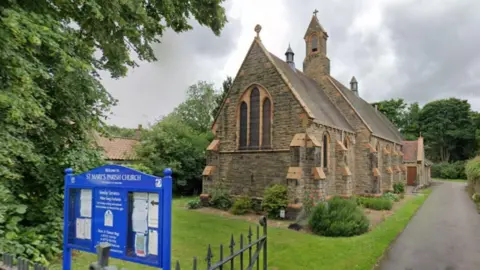A recent development has emerged from the St Mary’s Church food bank located in the Cockerton area of Darlington, which highlights the increasing burdens faced by such services amid financial constraints. The food bank, which has been a lifeline for many in the community, has made the difficult decision to restrict assistance to one food bag per month per client, starting in May. This modification to their service comes in response to rising operational costs that have resulted in unsustainable financial demands on the church.
Father Damon Bage, the head of St Mary’s Church, expressed deep concern regarding the food bank’s financial situation, revealing that the church has been spending over £200 each week to maintain the service. He indicated that should this spending pattern persist, the church might have to close the food bank entirely by July. This statement underscores the precarious position many food banks find themselves in as they struggle with diminishing resources while the demand for their services continues to rise.
In addition to limiting the number of bags provided to clients, the food bank will still welcome visitors for coffee and allow them to take any fresh food donations that are available in the interim weeks. New clients, however, will still receive food bags for four consecutive weeks when they first arrive. This approach is intended to facilitate some degree of ongoing assistance while acknowledging the harsh realities of their financial predicament. Thus, although the food bank will remain open weekly, the new restrictions reflect a significant reduction in what they can offer to the community.
This announcement from St Mary’s Church follows closely on the heels of a similar reduction in services at King’s Church, also based in Darlington. King’s Church indicated that it had to downscale its food bank operations due to a substantial decline in funding, even after having distributed over 125,000 free meals in the previous year. The Local Democracy Reporting Service noted that the church’s donations dwindled despite the growing number of individuals in need, illustrating a troubling trend that many charities are currently experiencing.
Local Conservative politician Jonathan Dulston commented on the situation, expressing that the recent cuts to food bank services should serve as a wake-up call for the Labour-led Darlington Borough Council. He emphasized the need to rethink and possibly reorganize the way that food banks function collectively within the borough. Dulston suggested a collaborative approach, encouraging food banks to work together in partnership in order to better address the escalating food security issues faced by residents.
Moreover, he highlighted the allocation of funds from the council’s Household Support Fund, which had been designated to assist the King’s Church food bank, showing a recognition of governmental responsibility to support food assistance programs. Calls for a strategic reevaluation of food bank collaborations resonate amid growing concerns over the sustainability of these vital community services.
In conclusion, the distressing situation at St Mary’s Church food bank captures a broader crisis affecting food assistance programs across various regions. Increased demand paired with a shortage in donations and funding paints a grim picture for vulnerable populations relying on these essential services. As community leaders and local authorities explore new strategies to combat these challenges, the humanitarian implications of such decisions remain significant and should be a priority for all stakeholders involved. The pressing need for sustainable solutions to ensure food security continues to be a pressing issue in Darlington and beyond. Consequently, maintaining open discussions and fostering collaborative efforts among food assistance organizations and local governance will be essential in addressing these ongoing challenges.



